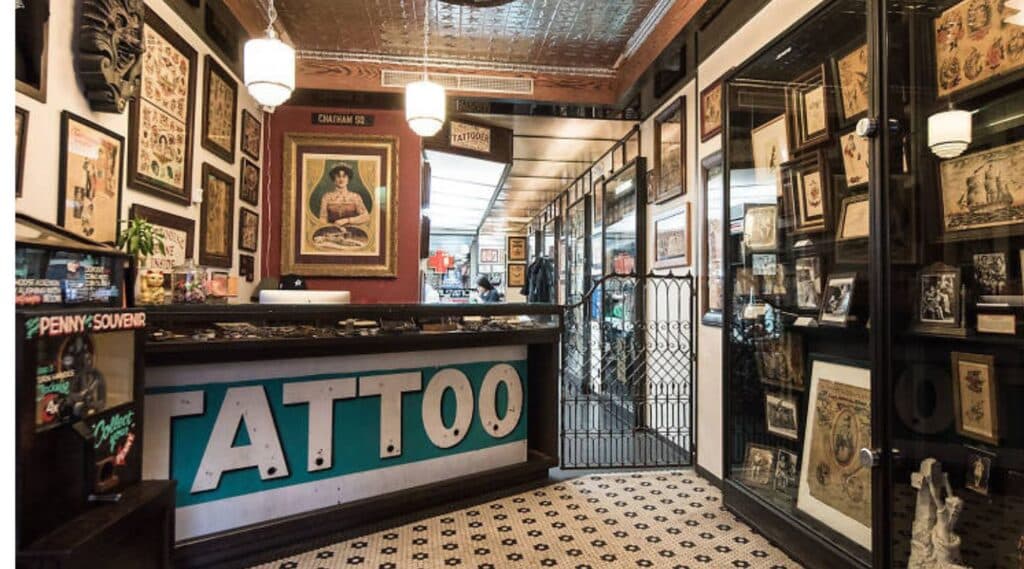One of the first things you should consider when getting your first or a new Tattoo is to identify if the parlor you want to go to is safe or not.
Countless people step into tattoo parlors every year in the hopes of expressing themselves through their body art, with many people going into parlors on a whim in foreign countries.
However, something many people might not consider is identifying a safe tattoo parlor.
Unsanitary work practices can lead to a number of problems from infections, while unprofessional artists or poor equipment can result in poor-quality tattoos that may fade quickly and need to be redone.
Here we will explore everything you need to know to identify a safe tattoo parlor by informing you about the importance of hygiene practices to recognizing professional credentials and effective consultation processes, allowing you to enjoy the tattooing experience and cherish the outcome without undue concern for safety.
Understanding Tattoo Parlor Regulations
When it comes to tattooing, one of the first things you should consider is the regulatory environment that governs tattoo parlors.
But it is important to remember that regulations concerning tattoo parlors are not universal as they vary significantly from one region to another and even from city to city within the same country.
The difference in these regulations means it's up to you to be aware of the local laws and standards that apply to tattoo parlors in the area you want to get inked.
Variability of Regulations
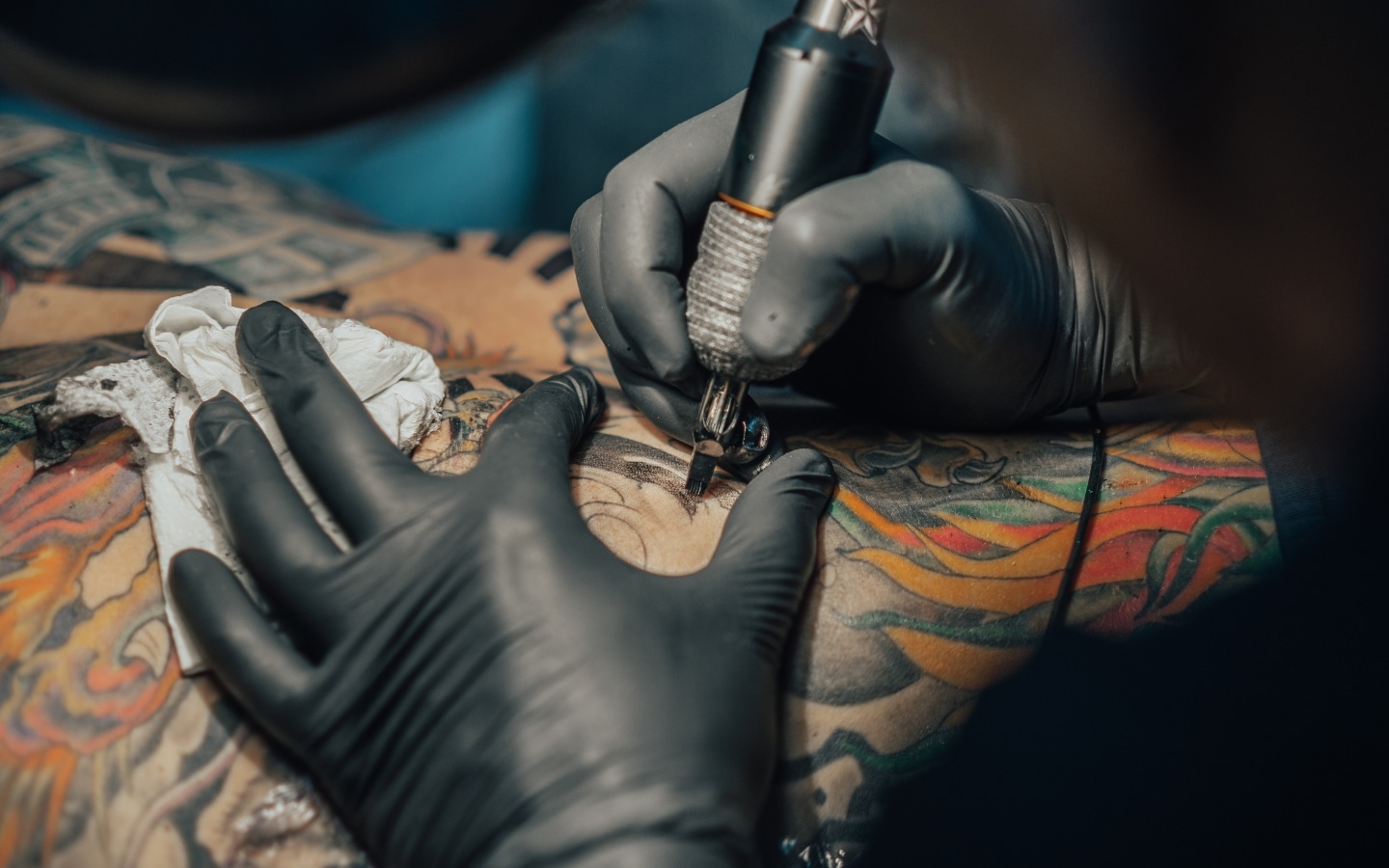
In some places, tattoo parlors are strictly regulated by health departments and other governmental agencies, who may enforce stringent standards on hygiene, licensing, and operational procedures.
These regulations are designed to protect both you and the tattoo artists by reducing the risk of infection and ensuring a minimum level of professionalism within the industry.
However, tattoo parlors might not operate with these regulations in other regions, relying more on self-regulation or purely market-driven standards, meaning that you will have to take the responsibility to check these tattoo parlor's safety and professionalism.
Why Understanding Regulations is Crucial
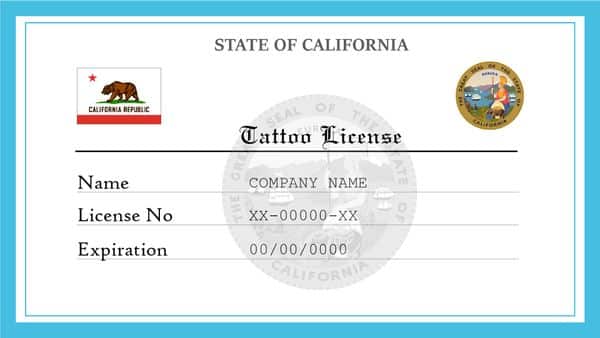
Photo credit: licenselookup.org
Understanding the regulations in your area is a great way to help gauge the standards any reputable tattoo parlor should meet.
It also provides a framework for evaluating the practices observed in your chosen parlor.
If you're familar with the terms of health and safety regulations, it will help you make more informed decisions for potential red flags when selecting a parlor.
For instance, if a parlor fails to display its licenses or adhere to health codes, it can be a clear sign they are not complying in areas that have rigorous regulations.
On the other hand, in regions that have less stringent regulations, the absence of displayed licenses, while might not necessarily indicate a problem, it does mean that you should conduct a more thorough personal assessment of the parlor’s safety practices.
Tips for Researching Local Regulations
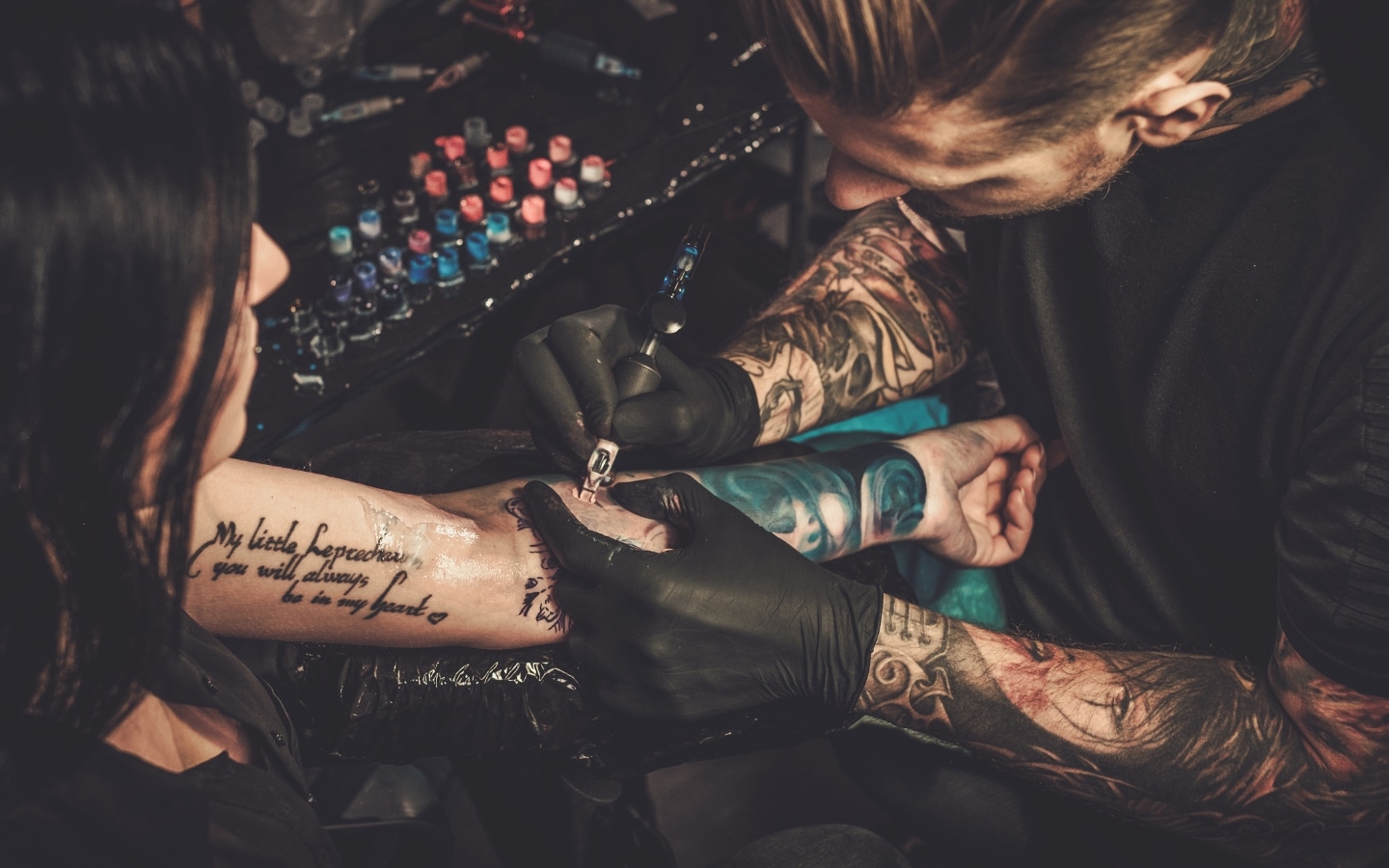
Researching is a vital way to ensure your chosen parlor meets all the health and safety requirement regulations.
The easiest way to do your research is by visiting local government websites or contacting local health departments so you can get more information on tattoo regulations in your area.
Reputable parlors should be transparent about meeting and exceeding local regulations, so don't hesitate to ask for their health and safety certificates.
Also, online forums and community groups are terrific as they can provide insights into how local parlors respect regulations and whether there have been any health-related incidents.
Key Indicators of a Safe Tattoo Parlor
Identifying a safe tattoo parlor involves scrutinizing several aspects of the establishment.
These indicators are not only signs of professionalism but also of a parlor’s commitment to client safety and health.
Cleanliness and Hygiene Practices
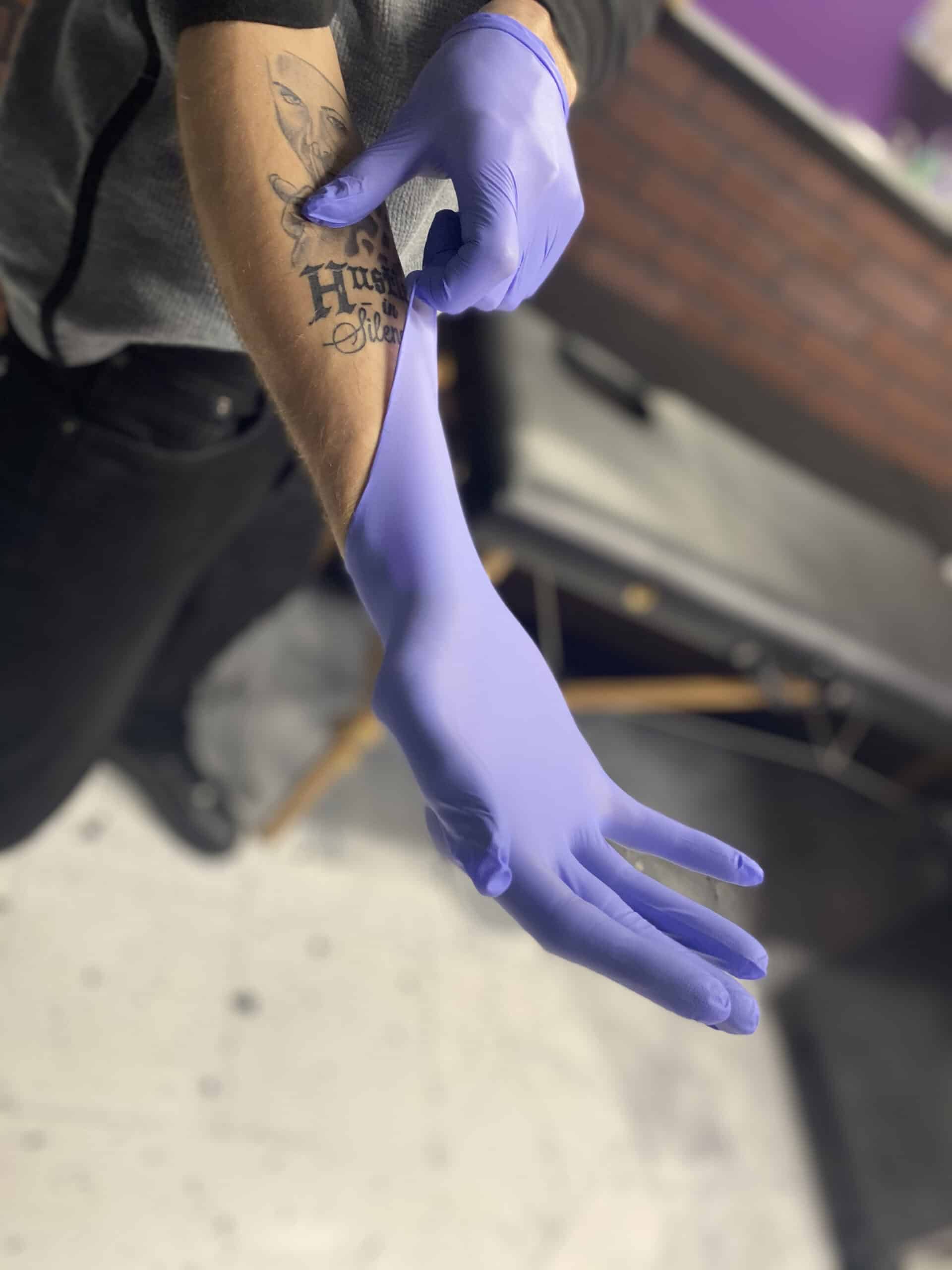
Photo credit: themadtatterky.com
Cleanliness and hygiene are some of the most crucial indicators of a safe tattoo parlor.
A clean environment helps prevent the transmission of infections and ensures that all procedures are performed under safe conditions.
All tools used in the tattooing process, including the needles, should be either single-use or sterilized in what's known as an autoclave.
Keep your eye out for visible indicators of sterilization practices, such as sealed and dated sterilization pouches for equipment.
A parlor's work areas should also be well-organized, clutter-free, and cleaned between sessions with surfaces being non-porous to allow for proper disinfection.
Lastly, disposable items such as gloves, paper towels, and ink caps should be used once and then discarded to minimize cross-contamination.
Professional Credentials and Training
The qualifications and training of your tattoo artist is also fundamental to ensuring your safety.
Check that the tattoo artists and parlor are licensed within local regulation requirements. These licenses should be displayed prominently within the parlor.
Quality of Equipment and Supplies
The quality and maintenance of the equipment used are vital for both the safety and quality of the tattoos.
High-quality inks reduce the risk of allergic reactions and ensure the longevity and clarity of the tattoo. Ask about the types of ink used and whether they meet safety standards.
Ensure that the tattoo machines and other equipment are in good condition. Proper maintenance is essential for precise application and prevention of equipment-related injuries.
Consultation Process
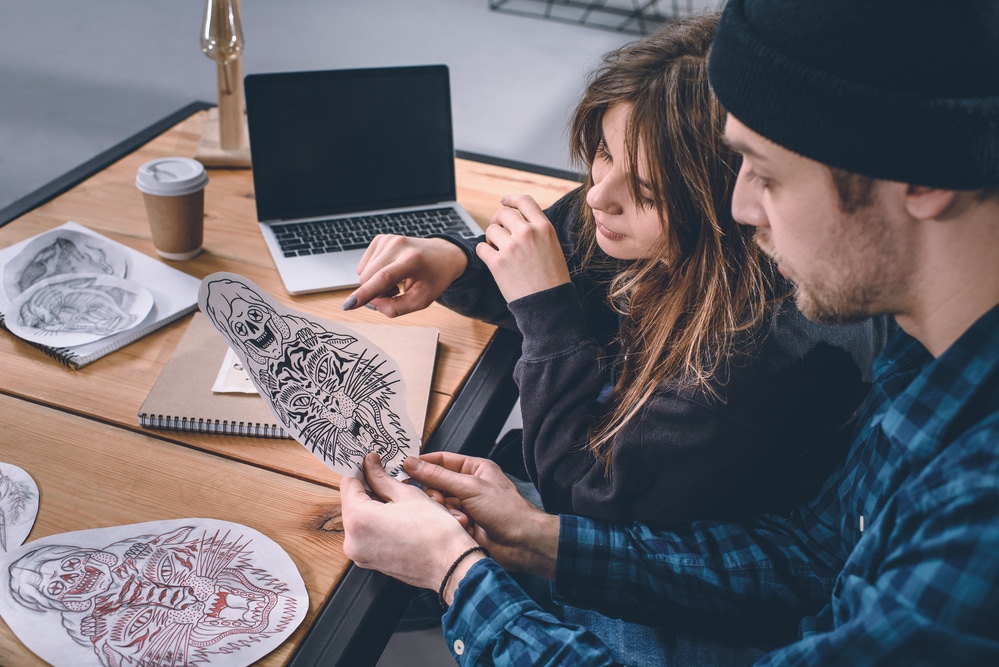
Photo credit: oracletattoogallery.com
Make sure you book a consultation with the parlor before committing to getting inked.
Consultations ensure that you and the tattoo artist are on the same page regarding the design and placement and it also provides an opportunity to assess the parlor's approach to safety and professionalism.
Importance of a Thorough Consultation
A consultation lets you discuss your desired tattoo design in detail, including size, color, placement, and personal significance, so it will help ensure that the final artwork aligns with your expectations.
Now is the time to disclose any health conditions or allergies that may affect the tattooing process.
Your artist can tailor the procedure to accommodate any specific needs, ensuring your safety.
The consultation helps build a rapport between you and the artist. Getting a tattoo can be a personal and sometimes sensitive experience so having the peace of mind always helps.
Red Flags to Watch For
If an artist seems uninterested in discussing your design preferences or dismissive of your questions about safety procedures, it may indicate a lack of professionalism.
Any evasion regarding safety practices or hygiene standards is a significant red flag.
A reputable tattoo artist will never rush you into making a decision or pressure you to agree to a design or placement you are not comfortable with.
Customer Reviews and Testimonials
In the digital age, customer reviews and testimonials are invaluable resources when selecting a tattoo parlor.
They help provide real-world insights into previous clients' experiences, helping you gauge the establishment's reputation for safety, professionalism, and quality of artistry.
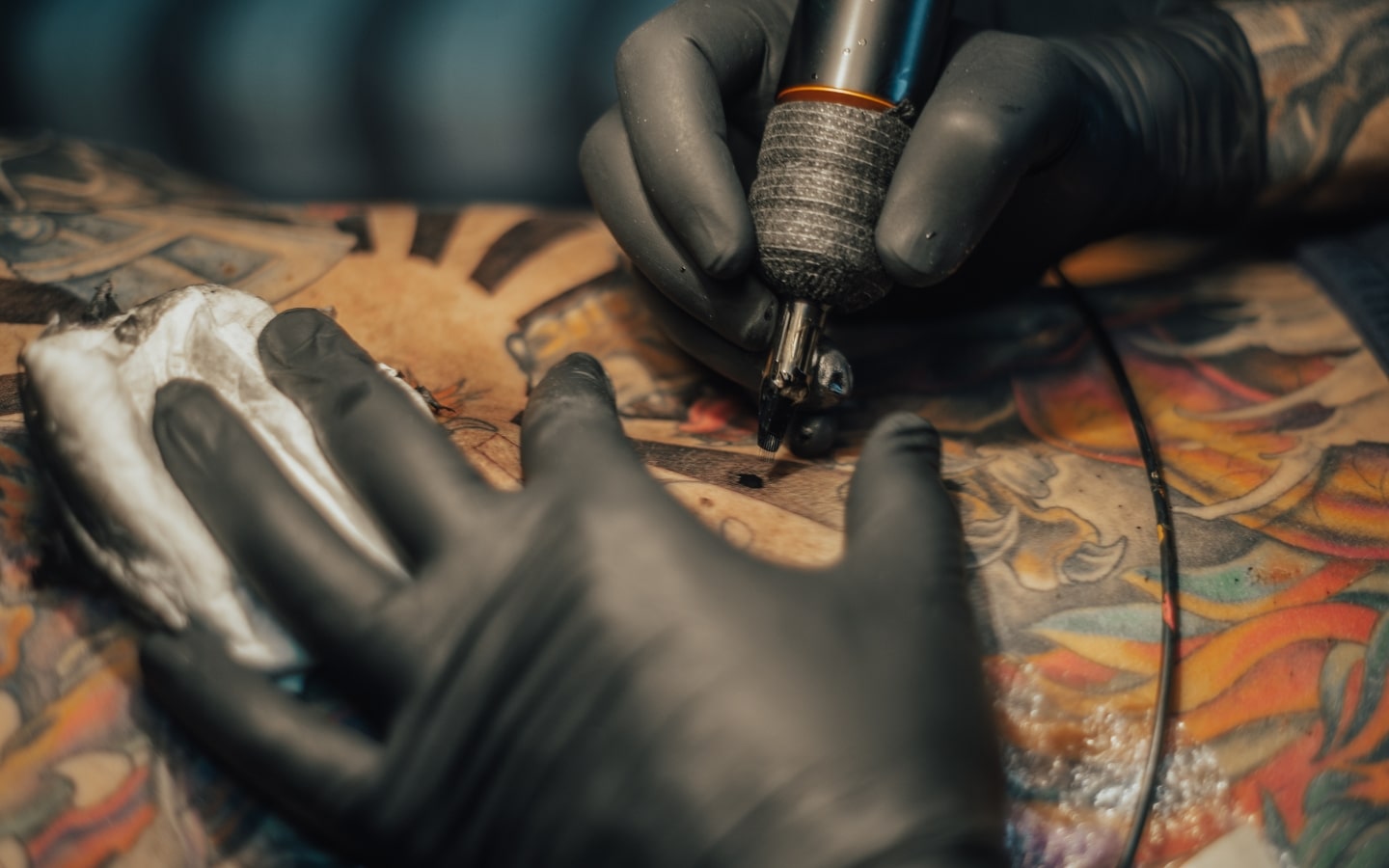
How to Find and Interpret Reviews
Checking popular review sites like Google, Yelp, and social media platforms where customers post their experiences will help provide you with ratings and detailed reviews.
Look out for specialty websites and forums dedicated to tattoo enthusiasts, as they can offer more detailed insights and discussions about specific parlors.
If you’re lucky, personal recommendations from friends or family who have had direct experience with a tattoo parlor can be extremely reliable.
Red Flags in Reviews
Multiple reviews citing the same or similar issues around cleanliness or customer service are almost certainly a sign of real problems.
Check and see how the parlor responds to negative reviews. A professional and constructive response can indicate good customer service, whereas dismissive or aggressive responses might raise concerns.
Visiting the Parlor
By going for an in-person visit to your tattoo parlor, you can reveal a lot about its operating standards and the professionalism of its staff.
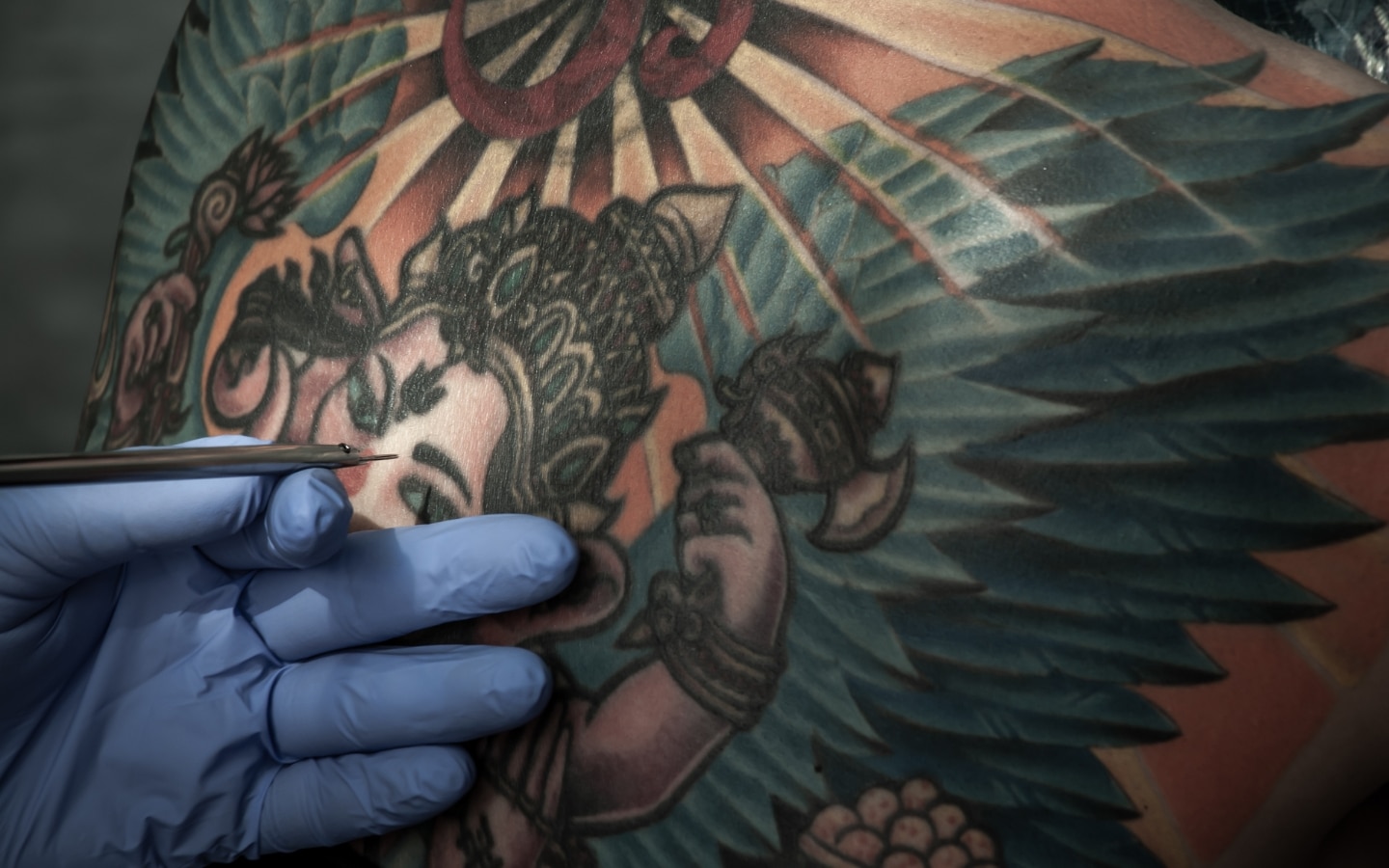
First Impressions
Your first check should be the parlor's overall cleanliness. Look for clean floors, organized workstations, and a tidy reception area. These are good indicators of the parlor's hygiene standards.
Check if the parlor prominently displays its business license, health inspection certificates, and artists’ certifications. Their transparency is a sign of professionalism.
The staff should be friendly and willing to answer any questions. A welcoming environment can often reflect the business's overall client-centered approach.
Workspace Inspection
If possible, ask to see the area where the equipment is sterilized. This area should be separate from the tattooing and reception areas to avoid contamination.
Observe whether disposable items like needles and gloves are indeed single-use and disposed of in a safe manner.
Check if protective barriers are used on equipment and surfaces to prevent cross-contamination.
Interaction with Staff
Your artist should be professional with their conduct by being willing to discuss your design ideas, explaining their process, and providing insights into how they ensure safety and cleanliness.
The staff should be open about their safety practices, including how they handle equipment sterilization, their cleaning routines, and what aftercare they recommend.
If possible, ask if you can see a tattoo session in progress. This can give you an idea of how the artists operate, such as how they handle tools and interact with clients during the process.
Questions to Ask the Tattoo Artist
Asking the right questions can provide deep insights into a tattoo artist's expertise, commitment to safety, and overall professionalism.
Ask questions about their experience and training, their health and safety practices, the tattooing process at their parlor, how they have handled unforeseen issues and their policies.
Conclusion
Choosing the right tattoo parlor is fundamentally about ensuring your health and safety.
Throughout this guide, we hope we have outlined several crucial factors that contribute to identifying a safe and professional tattoo parlor.
These include understanding local regulations, recognizing key indicators of cleanliness and hygiene, ensuring thorough consultations, evaluating customer reviews, and confirming adherence to robust safety protocols.
Additionally, visiting the parlor in person and asking the right questions can provide deep insights into the operational standards and professionalism of the staff.
We hope that with this article, you are now more educated to make a better-informed decision on identifying a safe tattoo parlor for your next tattooing adventure.
- Kristen Bell Tattoos - July 15, 2024
- Risks of Tattooing - July 3, 2024
- Early Tattooing Methods - June 22, 2024
